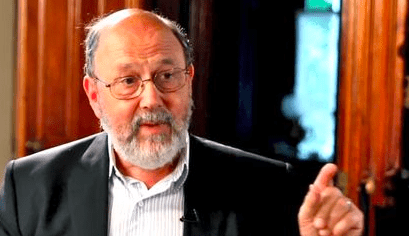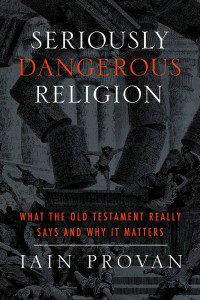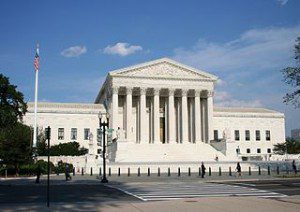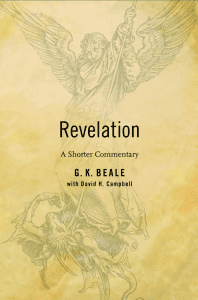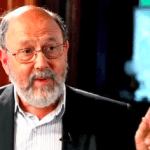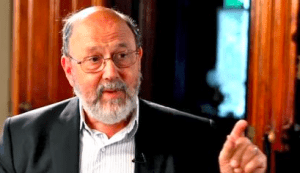By Patrick Mitchel:
At particular times in the history of the church, ‘disturbers’ have emerged, protesting against the cultural captivity of the church. They have rightly seen that authentic Christianity should never be domesticated and made ‘safe’.
Maybe you can think of some ‘disturbers’. A couple that come to mind are:
Albert Schweitzer’s apocalyptic Jesus brushed aside the anaemic Jesus that had resulted from 19th century liberal theology’s quest for the ‘historical Jesus’. Schweitzer was magnificently right in his rejection of the un-Jewish and un-troubling Christ of the First Quest. His portrait of Jesus of the Gospels was far closer to the truth – even if Schweitzer finally drew the wrong conclusions about Jesus as a failed apocalyptic revolutionary.
The 20th century Jesus Seminar was in many ways a replay of the First Quest – a de-historized Jesus, shorn of miracles and the eschatological urgency of the kingdom of God. One of N T Wright’s many achievements has been his compelling rejection of the methodology and conclusions of the Jesus Seminar in his Jesus and the Victory of God. What shines through Wright’s work on Jesus is how he brings the Gospels, and their main subject, to vibrant disturbing life.
Another ‘disturber’ was the Swiss pipe-smoker Karl Barth. His protest was against a culturally captive form of Christianity, unable even to identify the threat Hitler posed. His great ‘NO’ to any form of natural theology denied that God could be reached ‘from the bottom up’. Barth’s genius was to insist on absolute otherness of God; God could only be revealed from the ‘top down’ by the triune God himself.
Thus, God, for Barth is both the Revealer and the Revelation. It is God alone who can choose to reveal himself, and he does so in Jesus Christ. It is God’s Spirit alone who can effect God’s revelation in Christ. It is a mixture of hubris, pride and naivety that leads people to believe that they can put God in a nice neat box. Barth blew up the box.
Schweitzer and Barth, in very different ways, saw clearly that when we downplay the ‘weirdness’ or ‘Otherness’ of Christianity, God and the gospel become quickly domesticated, diluted, insipid; unable to stand against evil; to give prophetic witness; to form radical and counter-cultural communities of faith; to speak of an alternative kingdom of God that has broken into this world.
It’s no coincidence that both Barth and Schweitzer spent much time considering Jesus. The Jesus of the Gospels just isn’t dull, predictable, undemanding, easily accommodated into our lives and having little to say about the broken world in which we live.
Once we lose touch with the weirdness of Christian faith, it is inevitable that we end up with a form of Christianity that is virtually indistinguishable from the wider culture.
So what are some signs that we have lost touch with the strange Otherness of Christianity?
Here are some suggestions in no particular order – feel welcome to add your own:
1. When the content of much Christianity tends to be primarily therapeutic.
God loves you and has a wonderful plan for your life. The church is a community where you will be loved and accepted unconditionally. The gospel will give your life new significance and meaning. God will help you navigate through the storms of life. The pastor is there to remind and encourage you that you are loved.
This is Christianity lite – a form of spiritual consumerism that promises all and demands little. God is there for you because you are worth it.
No place here for the NT’s embrace of suffering, injustice and persecution as ‘light and momentary troubles’.
No place here for the notion that being a Christian means death: death to the self; death to sin; death to an old order of existence.
2. When faith is assumed.
This is perhaps the most damaging legacy of Christendom. Everybody is ‘in’; everybody has been baptised; Christianity is natural, universal, and all-embracing. The focus of preaching and teaching is on equipping and exhorting and encouraging members to be more committed to helping the church maintain its structures and existence. Mission is marginalised and almost irrelevant.
Little place in an assumed faith for the deep mystery of the atonement: that somehow in one man’s death and shed blood, something happened of universal spiritual significance that forgiveness and freedom from sin needs to be appropriated through repentance and faith.
3. When Jesus is marginalised.
You know – things like his apparently crazy teaching on non-violence. His teaching on money and possessions. His utterly uncompromising demands of his followers. His passion for justice. His words of coming judgment. His unrelenting eschatological focus on the kingdom of God and his urgent summons to enter now.
And, to top all of this, is the NT’s exalted Christological claim that this local Rabbi was God in the flesh. A completely unexpected development; foolish nonsense to Greeks, revolting heresy to Jews, unbelievable religious jargon to contemporary atheists, a threatening universal truth claim to modern pluralists.
This is why I love this picture of Jesus by Oliver Crisp – it brilliantly captures the otherness of Jesus who resists all easy categorisation.
4. When the Spirit is paid only lip-service.
Pentecostals and charismatics rightly protest against a sort of virtually ‘binitarian’ Christianity, where the vital, central and life-giving role of the Spirit is replaced with a form of rationalism. Where there is little expectation of the empowering presence of God himself to change lives, heal, and work visibly in the church and the world.
5. When ‘God is on our side’.
I mean by this a form of religious nationalism where Christianity is co-opted to bless and sanctify our politics; our identity; our nation. ‘God bless America’. God on the side of the British Empire. God on the side of Catholic Ireland’s fight for freedom against that Empire. God on the side of [Protestant] Ulster not to be subsumed within Catholic Ireland.
God sure does switch sides a lot doesn’t he?
Once God is safely for us, then our enemies are unrighteous. Since error and heresy have no right, all sorts of horror follows. For examples, read some Irish history.
6. When we buy into the sacred / secular divide.
A nice image here is of an orange and a peach. A Christian view of life is not orange – nicely segmented into distinct categories, with spiritual being one sitting alongside work, family, leisure etc. Rather life is like a peach – one whole fruit where everything is spiritual with Jesus as the centre stone.
The sacred / secular divide attempts to neuter the universal Lordship of Christ over all of life. It reduces Christianity to some sort of Kantian subjective experience. Truth becomes individualised and privatized. The gospel is reduced and personalised. The church has little to say to the world.
7. When we lose touch with the eschatological heartbeat of the Bible.
The OT and NT look forward to a new creation; a remaking of all things within a different order of existence where death is banished. No hospitals, doctors, medicines or morgues there. A future where evil and sin will have no place and justice will be done for ever.
But this is not just away in the future sometime – the future is already here in the present. The ‘proof’ is the presence of the promised Spirit, a foretaste of God’s rule to come. The resurrection of Jesus is the forerunner of the resurrection to come for all who belong to him.
Now that just doesn’t sound ‘normal’ and rational and scientific does it? Such a vision invites scorn and ridicule (as well as joy and hope). Well, let the scorn and ridicule come for Christianity is nothing without eschatology. Whenever the church loses focus on future hope it becomes fat, lazy, complacent and inward looking.
So, any attempt to make Christianity acceptable and reasonable to modern culture by removing the ‘unbelievable’ bits is doomed to failure. Even with the best of intentions, what remains will bear little resemblance to historic orthodox Christian faith.
I’ve nothing against good apologetics (defending the historic reliability of the Bible, the historicity of the resurrection etc) but increasingly I see a Christian’s primary task as simply announcing and telling and discussing the good news as it stands – without apology, or qualification or embarrassment. (And without aggression, arrogance or coercion either).
The irony is that it’s when we take it upon ourselves to change the story and try to make it more popular and relevant, that we do the greatest damage.
In other words, let the weirdness and Otherness of the Christian gospel stand on its own two feet. This is the apostolic story that we have been given – let’s keep to the script and trust in God to do the rest.
 Because of the drift away from Jesus the Pastor (Shepherd), the pastoral landscape is awash with convoluted definitions of pastoral work squeezed into an American cultural mold. I desire to be a voice for and champion of the local church pastor with the understanding that Jesus is the Supreme Example of and Empowering Reality for defining the pastor.
Because of the drift away from Jesus the Pastor (Shepherd), the pastoral landscape is awash with convoluted definitions of pastoral work squeezed into an American cultural mold. I desire to be a voice for and champion of the local church pastor with the understanding that Jesus is the Supreme Example of and Empowering Reality for defining the pastor.


